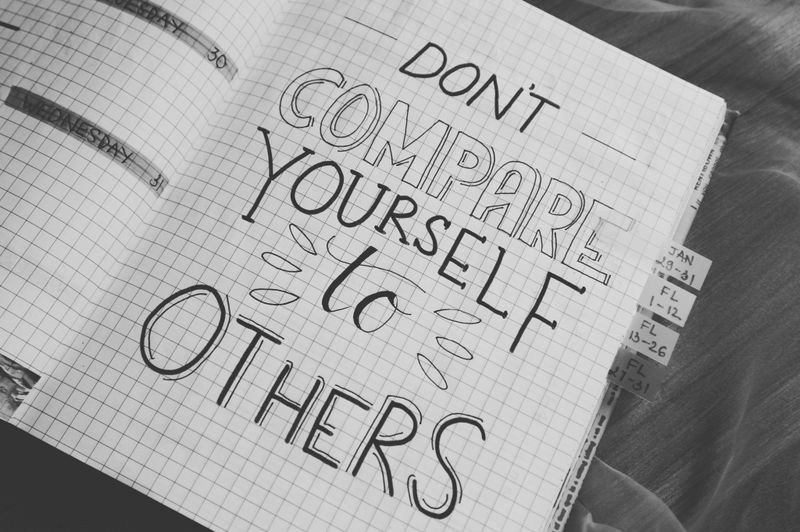Self-care has become a popular buzzword, but not all wellness trends actually support our health. Many practices we think help us might secretly be harming our physical and mental wellbeing.
Psychologists warn that some common self-care habits can create more problems than they solve. Let’s examine which popular self-care practices might actually be undermining your health goals.
1. Binge-Watching Shows as Stress Relief
That Netflix marathon might feel like the perfect escape after a tough day, but excessive TV watching can worsen stress levels over time. The blue light disrupts sleep patterns, while the sedentary nature of binge sessions reduces physical activity.
Many people don’t realize that what starts as harmless entertainment can become a form of avoidance behavior. Instead of processing emotions, we temporarily numb them, leaving underlying issues unaddressed.
Healthier alternatives include limiting viewing to one episode, combining TV time with light stretching, or choosing more active forms of relaxation like a short walk or creative hobby.
2. Retail Therapy as Emotional Management
Shopping to boost your mood provides a quick dopamine hit, but psychologists identify this as potentially problematic behavior. The temporary happiness from purchasing something new fades quickly, often leaving behind financial stress and clutter.
When shopping becomes your go-to emotional regulation strategy, you miss developing healthier coping mechanisms. Many people find themselves caught in a cycle where negative feelings trigger spending, creating more negative feelings when the credit card bill arrives.
True self-care involves addressing emotional needs directly through activities like journaling, talking with friends, or physical exercise – approaches that build lasting resilience rather than fleeting pleasure.
3. Overindulging in Comfort Foods
Reaching for that pint of ice cream after a difficult day feels soothing in the moment. Your brain receives an immediate rush of feel-good chemicals. But regularly using high-sugar, high-fat foods as emotional support creates problematic patterns.
The temporary comfort quickly transforms into physical discomfort, energy crashes, and potential guilt. Many people don’t recognize how this habit strengthens the connection between emotions and eating, making it harder to develop healthier coping strategies.
Mindful eating represents a more balanced approach – enjoying treats occasionally while developing alternative stress-management techniques like deep breathing or gentle movement that don’t center around food.
4. Excessive Social Media Scrolling
Many of us grab our phones for a quick social media break, believing it helps us decompress. Research tells a different story – mindless scrolling actually increases anxiety, triggers comparison, and disrupts concentration.
The algorithms deliberately keep us engaged through dopamine-driven feedback loops. What starts as a five-minute distraction can easily consume hours of your day, leaving you feeling more drained than refreshed.
Mental health professionals recommend scheduling specific times for social media use rather than reaching for it whenever uncomfortable emotions arise. Setting app timers and creating phone-free zones in your home can help break this deceptive self-care habit.
5. Isolating Yourself as ‘Me Time’
Solitude can be refreshing, but complete social withdrawal often masquerades as self-care while actually harming mental health. Humans are inherently social creatures who need meaningful connection to thrive.
Regular isolation can gradually increase feelings of loneliness and depression. Many people don’t realize they’ve crossed the line from healthy alone time to problematic avoidance until they’re deeply entrenched in isolation patterns.
Balanced self-care involves both quality solitude and nurturing relationships. Try scheduling regular, brief social interactions even during difficult periods – a quick coffee date or phone call can provide emotional nourishment without overwhelming your social battery.
6. Excessive Sleep as Escape
“Bed rotting” – spending excessive time sleeping or lying in bed – has gained popularity as self-care, but mental health experts raise concerns. While adequate sleep is essential, using sleep to avoid life’s challenges disrupts your body’s natural rhythms.
Oversleeping paradoxically increases fatigue and can worsen symptoms of depression. The temporary escape feels comforting but prevents you from addressing underlying issues causing your distress.
Healthier alternatives include maintaining consistent sleep schedules and finding more active forms of rest. Even gentle activities like stretching, light reading, or sitting outside provide rejuvenation without the negative effects of prolonged bed time.
7. Perfectionist Self-Improvement
The pursuit of constant self-improvement seems virtuous but often becomes an exhausting treadmill. Setting impossibly high standards transforms potential growth into a source of anxiety and inadequacy.
Perfectionism creates a mindset where you’re never quite good enough. Many wellness influencers promote relentless optimization without acknowledging the mental toll of never feeling satisfied with your current self.
Genuine self-care embraces self-compassion alongside growth. Try focusing on progress rather than perfection, celebrating small wins, and occasionally giving yourself permission to simply exist without improvement goals. Remember that rest and acceptance are equally important parts of a healthy life.
8. Avoiding Difficult Emotions Through Positivity
Forced positivity – often called “toxic positivity” – pressures us to suppress negative emotions in favor of cheerful facades. While optimism has benefits, denying challenging feelings prevents emotional processing and authentic healing.
Constantly pushing away sadness, anger, or fear creates internal pressure. These emotions don’t disappear but instead manifest in other ways – physical tension, sleep problems, or unexpected emotional outbursts.
Healthier emotional self-care involves acknowledging all feelings without judgment. Try naming emotions as they arise, journaling about difficult experiences, or speaking with a trusted friend. Remember that emotional wellness includes developing comfort with the full spectrum of human feelings.
9. Using Alcohol to Unwind Daily
That evening glass of wine might feel like the perfect transition from work to relaxation, but alcohol actually disrupts your body’s natural stress-response systems. While providing temporary relief, regular drinking interferes with REM sleep and can worsen anxiety over time.
Many adults don’t realize they’ve developed a psychological dependence on alcohol for stress management. What starts as an occasional indulgence gradually becomes a nightly necessity for relaxation.
Healthier alternatives include herbal teas, alcohol-free “mocktails,” or relaxation activities that naturally reduce stress hormones. Try experimenting with different evening rituals like gentle stretching, reading, or aromatherapy to signal your brain it’s time to unwind.
10. Excessive Exercise Without Recovery
Pushing through intense daily workouts might seem dedicated, but your body needs recovery time. Without adequate rest between sessions, exercise becomes a stressor rather than stress-reliever, potentially leading to injuries and hormonal imbalances.
Exercise addiction often disguises itself as health consciousness. Many fitness enthusiasts don’t recognize when they’ve crossed from healthy habit to compulsive behavior, continuing to exercise despite pain, fatigue, or negative consequences.
Balanced fitness includes rest days, varied intensity levels, and listening to your body’s signals. Try incorporating gentle movement like walking or yoga between more demanding workouts, and remember that progress happens during recovery, not just during exertion.











